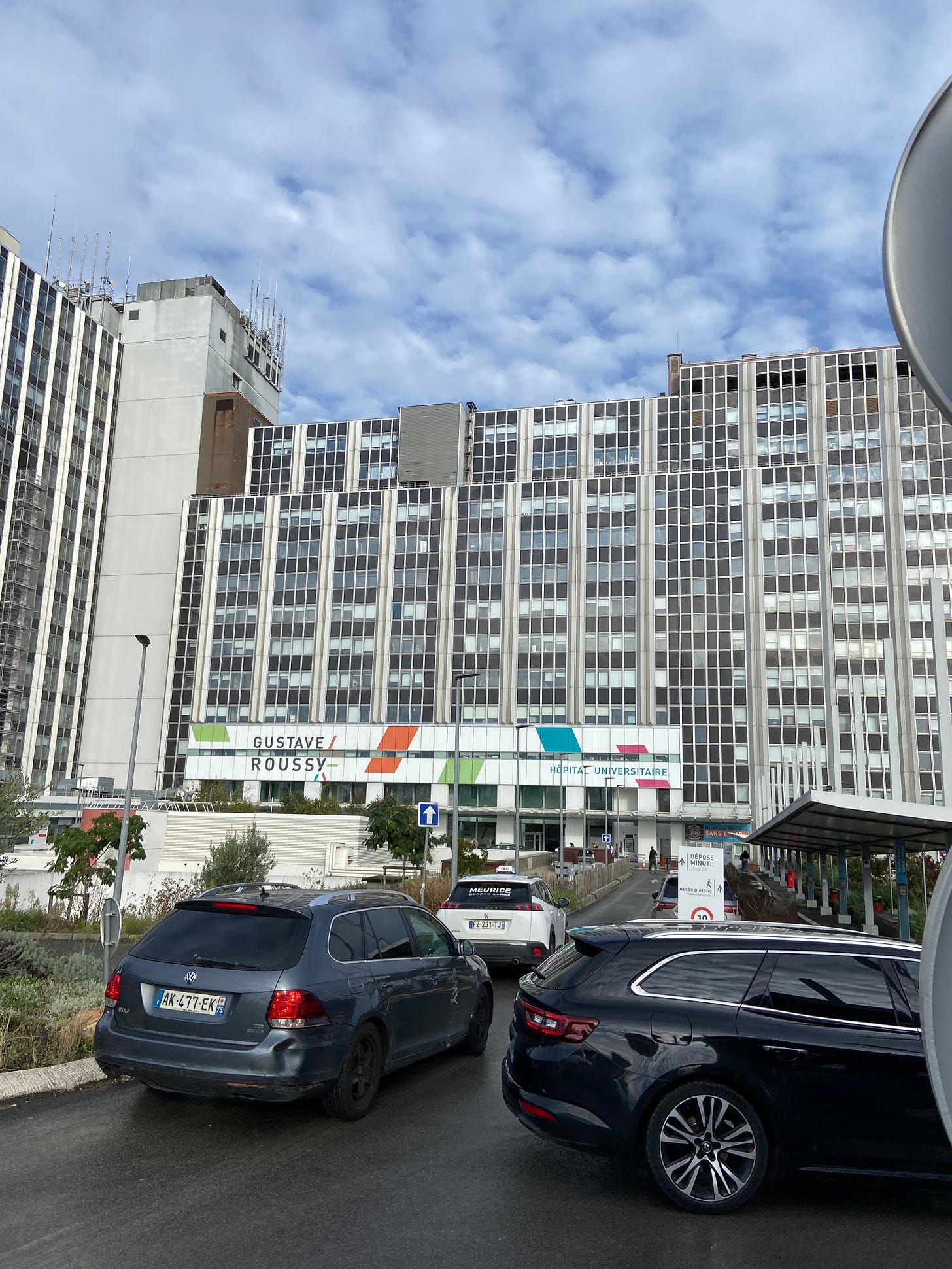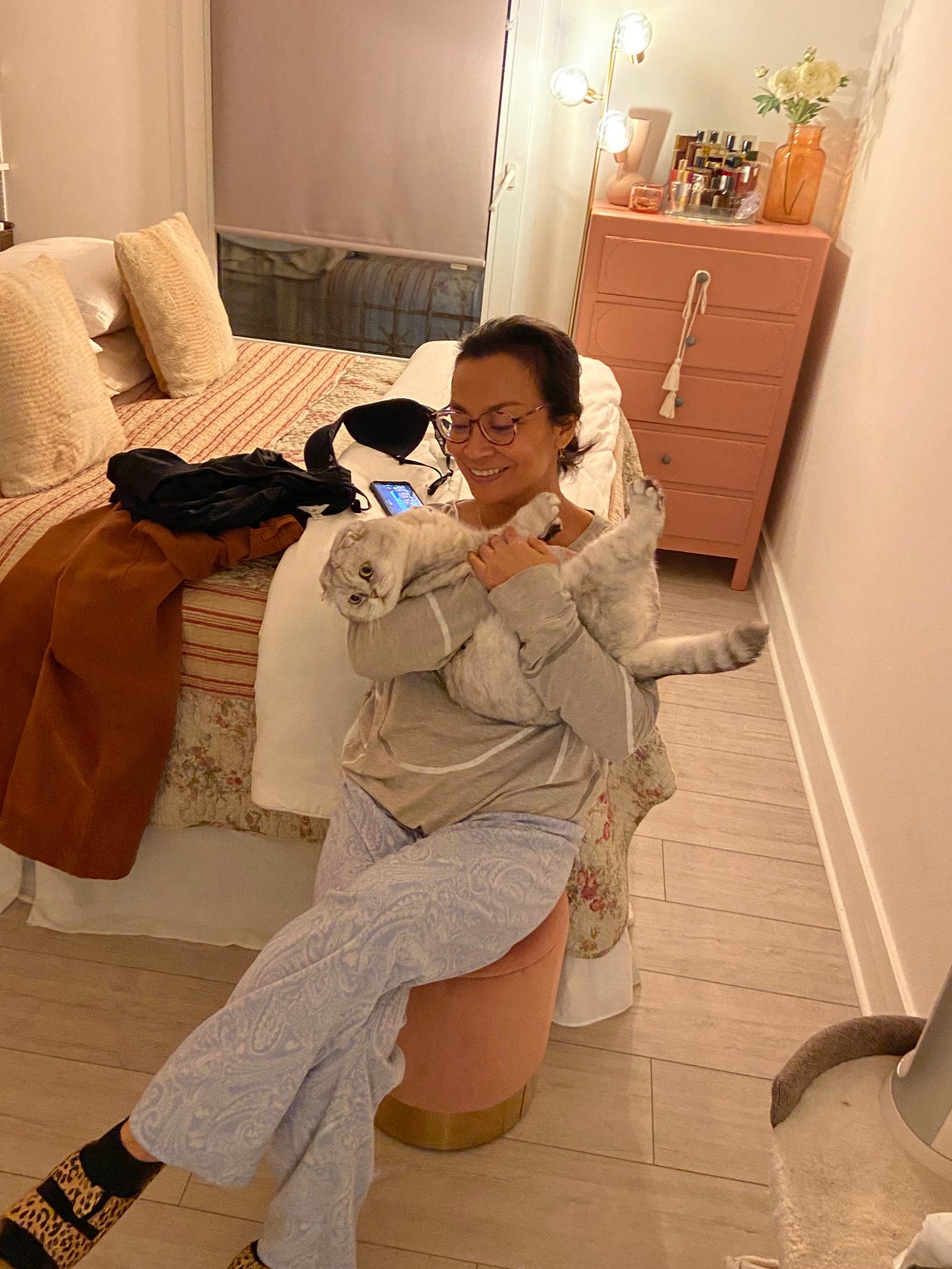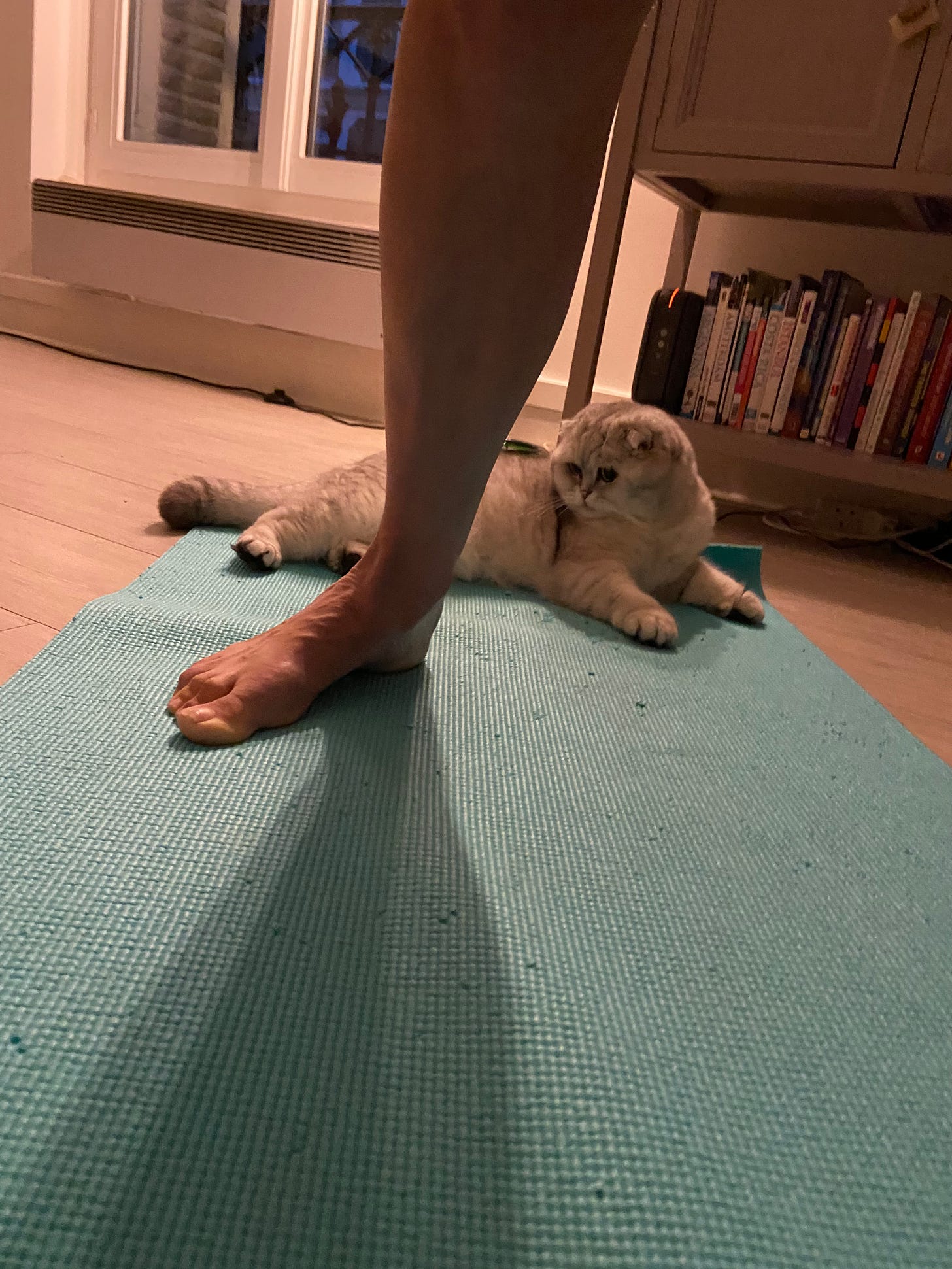That thing with feathers
It's elusive, but I'm not giving up the chase.
Part One: Everything from everywhere all at once
All of our belongings from Uzbekistan arrived while we were away this summer. Things Theadora has outgrown. Clothing I don’t need. Things we have no room for. And about forty boxes of books.
When you move constantly and your things take forever to catch up with you (in this case a year), you end up with redundancies because you just can’t go a year without a frying pan or a wool sweater. Now, with everything we own in the same place for the first time ever, we are working busily to give away or recycle everything we don’t need.
I suddenly find myself very unsentimental about clothing, and, well, pretty much everything except books and decent frying pans. I want to be free of all of it. I work from home, and the rest of the time I’m in hospitals. I don’t need more than exercise clothing, a few dresses, and enough to keep me warm in winter. And I cannot help but think, as I heap things on the discard pile, that I am saving Tim and Theo some work in the future.
In my office, I am continuing to unpack the 41 remaining boxes of books. I am not sure that my shelves will be able to contain them all. So I also have a pile of books to give away. If you come visit me, I will fill your arms. Also: If you do want to visit, I wouldn’t wait.
Each time I shelve a book, I think, will I have time to read this? I look around and I see more books than I could finish in a very long lifetime. It’s hard to think that I am finally creating the office that I always wanted, just when it seems I may not have time to make use of it.
Yet the boxes must be unpacked. I can’t just leave them in great towers in the middle of my office. There is a pleasure in the orderly arrangement of the books, in sorting them into fiction, poetry, drama, nonfiction, mysteries. I have more nonfiction books than I thought I did, so those shelves are already overflowing. Anyone need any research books on the Holocaust?
Part Two: New light
Every morning since my tough conversation with Dr. D’Hondt, I have woken up in a state of adrenalized terror and dread. Like an actor on opening night, like an athlete before a major competition, like a soldier preparing for a siege. Deep breathing helps, without actually ceasing my mental gymnastics. I try to crowd my days with islands of small joys and leap from one to the next without looking down.
The biggest island: Theo arrived home from her first week of school brimming with excitement and stories. She adores her roommate. She is running for class president. The student body is diverse. She is among many others in the arts. It was a joy and a relief to listen to her. The first night, we sat on the steps in the kitchen chatting as Tim did the dishes. She apologized for not being homesick.
I told her I was delighted she was happy. “You don’t need to be homesick. It is a pleasure to see you evolve and become independent and find your own way. I miss you, but when I say I miss you I don’t mean that you are doing the wrong thing. I think you are doing exactly the right thing for you.”
And I mean it.
But this doesn’t make my heart break any less at losing time with her, now when I may have so very little. She knows I may be having a recurrence, but she has not asked questions, perhaps for fear of the answers.
Tim and I—with the help of friends who have emailed me useful suggestions—have been madly researching clinical trials for which I might be eligible (although the requirements are so technical and specific that only a doctor can find out for sure). Tim’s brother William suggested he try using Chat GPT to research trials, so he downloaded the free version for the first time. He began every request to Chat GPT with “Please could you…?” and greeted every resulting report with, “Thank you. That is helpful.” Pretty much the most British approach I can imagine.
“It’s a robot,” I said, watching him one night. “You don’t have to be polite.”
He looked aghast. “What, and endanger our relationship?”
While we have kept our search broad and international, it is becoming increasingly clear that the US is not going to be possible. I have contacted MD Anderson Cancer Center in Houston, Memorial Sloan Kettering in New York, and U Penn Medical Center, among others. Last night MD Anderson sent me a welcome packet that explained that I need to pay $3,000 just to get them to look at my cancer sample, and an additional $20,000 for a consult about my eligibility for trials. Memorial Sloan Kettering told me that most trials would cost me about half a million dollars. Dear friends in the US in cancer treatment, how much of your cancer care does your insurance cover? I can’t imagine how anyone stays solvent, even if insurance covers 90 percent. I am interested in how people afford treatment in the US, if you are willing to share.
In the meantime, I also requested and received an urgent appointment in Paris at Gustave Roussy, the premier cancer hospital in France. My friend Ana had suggested I contact Dr. Alexandra Leary, a specialist in ovarian cancer research. My own oncologist never suggested I seek opinions outside of Montpellier. She seemed to assume that I wouldn’t want to travel to find treatment or a trial. I wanted to say, “Have you met my family? Traveling far from home is what we do best.”
Thus, yesterday Tim drove me to Nîmes, where I hopped on the train to Paris and then the metro to the beautiful apartment of my friend Ana and her plush and personable cat Gizzy.
This morning I woke before dawn after a sleepless night, did some yoga to calm my nervous system, and took the long metro journey to the hospital.
I arrived an hour early, which was fortunate given the amount of paperwork I had to complete. At last I turned in all the forms and was sent to see Dr. Leary. She knows Prof. McNeish, the British oncologist who first diagnosed me, and even trained with him. It’s a small world.
After going through my history, reports, scans, and histology, Dr. Leary looked up and said, “I have lots of ideas for you.”
That was the sentence I had travelled to Paris to hear.
She ordered more blood tests, had me sign a bunch of consent forms, and ordered a new scan. There is much more screening to come. But we have begun the process. “You are young and fit and I think you’d be a good candidate for a trial,” she concluded. In the meantime, I will likely begin five and a half months of weekly chemotherapy, which she promises will not make me ineligible for trials.
Icing on the cake? Because I had to wait half an hour for the laboratory to open, the secretary gave me a voucher for a free lunch. Vive Gustave Roussy.






Hey, I can't think how long it's been since anyone has called me young and fit-bravo for the heartening news and for pursuing this further.
This is very good news, Jennifer! Stay strong!!!
I've been reluctant to say anything because this is SOOOO far away for you, but just for you to have in your research pile, The Angeles Clinic here in LA has saved my husband's life and given him a reset for multiple cancers after his onco at UCLA gave up on him. For your reference, here's the site:
https://www.theangelesclinic.org/